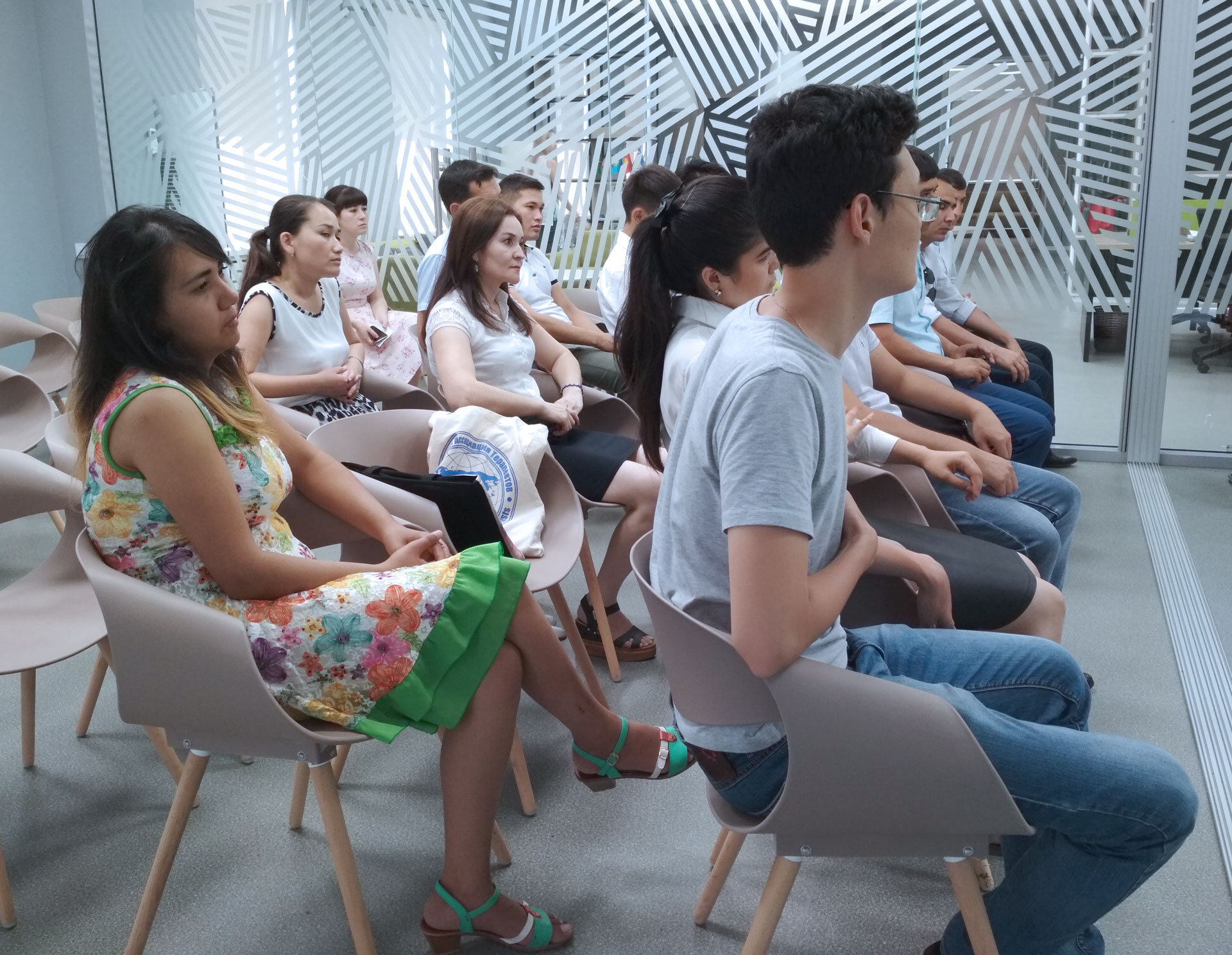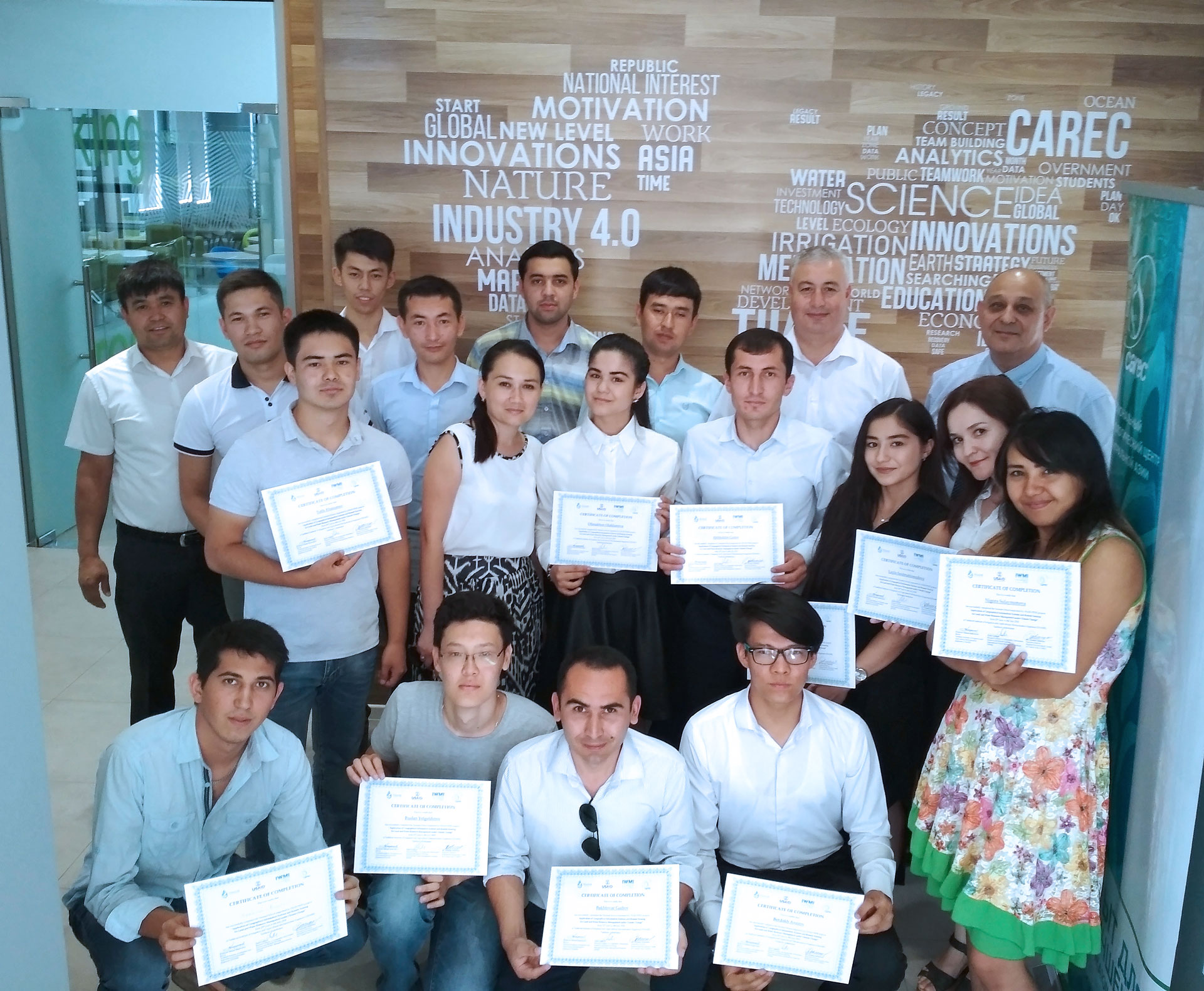
TASHKENT. On June 25 – July 4 CAREC-TIIAME Innovations and Scientific Research Cluster on Water Resources held a summer school for Central Asian students on Geographic Information System and Remote Sensing for Land and Water Resources Management in Climate Change Conditions. The course was organized by International Water Management Institute (IWMI) and the Regional Environmental Centre for Central Asia (CAREC), in collaboration with the Tashkent Institute of Irrigation and Agricultural Mechanization Engineers (TIIAME).
Participants included 18 students from the Kazakhstan National Agrarian University, Uzbekistan National University, Dushanbe State Agrarian University, UzHydromet Service, TIIAME and Tashkent State Agrarian University.
The purpose of the summer school was to share with participants the methodologies and findings of studies on the application of Geographic Information System (GIS) and Remote Sensing (RS) for land and water resource management and crop classification under the climate change conditions. The modelling experience and outcomes of the analysis of two PEER Cycle 5 projects were shared in the case of the Amudarya River, where both projects focus their climate change-related research.
The training has been organized within the framework of two PEER Cycle 5 projects:
“Implications of climate change, land use, and adaptation interventions on water resources and agricultural production in the transboundary Amu Darya River Basin” implemented by IWMI
"Study of the impact of climate change on surface water quality in the Amu Darya basin" implemented by CAREC.
In 2017, both projects agreed to coordinate and share data collection, exchange information and modelling efforts instead of duplicating. Joint work to achieve overall impact of PEER research, meanwhile being specific on the objectives of the research by each partner, both to study the climate change impact on land use and ag production – by IWMI, while CAREC – on water quality, is vital in the context of the scientific cooperation in Central Asia.
Both PEER projects are funded by the USAID supported initiative of U.S. National Academy of Sciences (NAS) – Partnerships for Enhanced Engagement in Research (PEER). They include components to improve capacity building of human resources in universities and institutes, with a focus on particularly increasing the GIS/RS and modelling capabilities of graduate students and junior researchers in Central Asia. Such outreach activities and collaboration with academic institutions in the region can bring sustainability of research results and effective knowledge transfer to younger generations.
The participants successfully graduated on July 4 and received the IWMI, TIIAME & CAREC certificates. The graduation ceremony was attended by Dr Tokhir Sultanov, Vice-Rector for Science of TIIAME; Dr Zafar Gafurov, PEER Project Manager, IWMI-CA; Dr Iskandar Abdullaev, PEER Project Leader, CAREC; and the Central Asian students.

